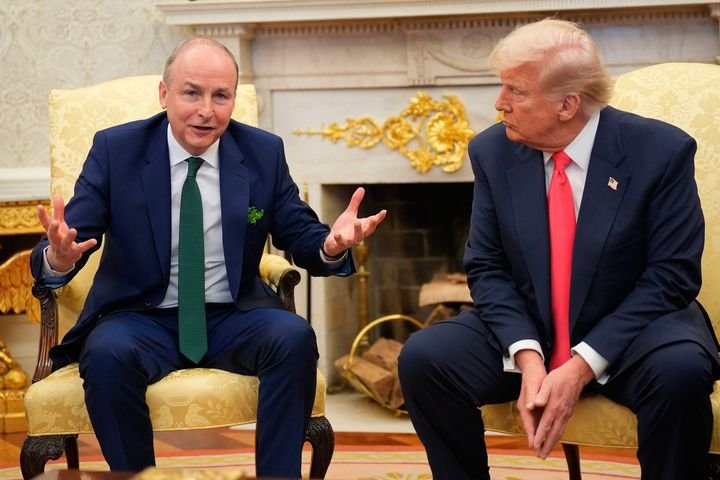Congress seeks clarification from Yellen on crypto oversight plans, criticizes Howey Test

Share this article
Members of the US Congress have posed a list of questions in a recent letter to Treasury Secretary Janet Yellen in response to her call for enhanced oversight of crypto. Notably, they highlighted the limitations of the Howey Test in protecting consumers in the crypto market.
The letter, signed by House Financial Services Committee Chair Patrick McHenry, House Agriculture Committee Chair Glenn Thompson, Rep. French Hill, and Rep. Dusty Johnson, seeks Yellen’s detailed explanation of how the regulatory framework should be shaped concerning digital assets, following her call earlier today.
Congress has requested clarification on the Securities and Exchange Commission’s (SEC) role. Notably, they have raised concerns about the effectiveness of the Howey Test, which is used to determine the classification of a transaction as an investment contract and, thus, a security. Congress is questioning whether the Howey Test is sufficient for providing adequate consumer protection.
The legislators have argued that the SEC’s retrospective application of the test does little to protect investors, stating:
“Chair Gensler has declared that “the vast majority of crypto tokens likely meet the investment contract test.” However, the final investment contract analysis is backwards looking, made by a court after the transaction in question has been completed. How does this reactive legal authority provide adequate protection for customers, in the absence of comprehensive legislation?”
Congress has also highlighted that the current regulatory framework does not cover a significant portion of the crypto-asset ecosystem, including Bitcoin and Ether. They have asked the Financial Stability Oversight Council (FSOC) whether these cryptocurrencies are considered securities. Led by Yellen, the FSOC brings together key financial regulators to monitor potential risks and safeguard the financial system.
Furthermore, Congressmen have expressed concern about regulatory gaps in spot markets for digital assets that are not considered securities. They are questioning if the Commodity Futures Trading Commission should expand its jurisdiction to include these spot markets, given its existing authority over certain aspects of non-security digital asset transactions. Congress expects to receive answers from Yellen by February 20.
Yellen has been actively advocating for stricter regulations after FTX’s collapse. In a testimony before the House Financial Services Committee on Tuesday, she warned of the risks associated with crypto platforms and stablecoins, urging Congress to enact stricter regulations for the crypto industry.
Share this article
Share this article
Members of the US Congress have posed a list of questions in a recent letter to Treasury Secretary Janet Yellen in response to her call for enhanced oversight of crypto. Notably, they highlighted the limitations of the Howey Test in protecting consumers in the crypto market.
The letter, signed by House Financial Services Committee Chair Patrick McHenry, House Agriculture Committee Chair Glenn Thompson, Rep. French Hill, and Rep. Dusty Johnson, seeks Yellen’s detailed explanation of how the regulatory framework should be shaped concerning digital assets, following her call earlier today.
Congress has requested clarification on the Securities and Exchange Commission’s (SEC) role. Notably, they have raised concerns about the effectiveness of the Howey Test, which is used to determine the classification of a transaction as an investment contract and, thus, a security. Congress is questioning whether the Howey Test is sufficient for providing adequate consumer protection.
The legislators have argued that the SEC’s retrospective application of the test does little to protect investors, stating:
“Chair Gensler has declared that “the vast majority of crypto tokens likely meet the investment contract test.” However, the final investment contract analysis is backwards looking, made by a court after the transaction in question has been completed. How does this reactive legal authority provide adequate protection for customers, in the absence of comprehensive legislation?”
Congress has also highlighted that the current regulatory framework does not cover a significant portion of the crypto-asset ecosystem, including Bitcoin and Ether. They have asked the Financial Stability Oversight Council (FSOC) whether these cryptocurrencies are considered securities. Led by Yellen, the FSOC brings together key financial regulators to monitor potential risks and safeguard the financial system.
Furthermore, Congressmen have expressed concern about regulatory gaps in spot markets for digital assets that are not considered securities. They are questioning if the Commodity Futures Trading Commission should expand its jurisdiction to include these spot markets, given its existing authority over certain aspects of non-security digital asset transactions. Congress expects to receive answers from Yellen by February 20.
Yellen has been actively advocating for stricter regulations after FTX’s collapse. In a testimony before the House Financial Services Committee on Tuesday, she warned of the risks associated with crypto platforms and stablecoins, urging Congress to enact stricter regulations for the crypto industry.
Share this article
Be the first to write a comment.



